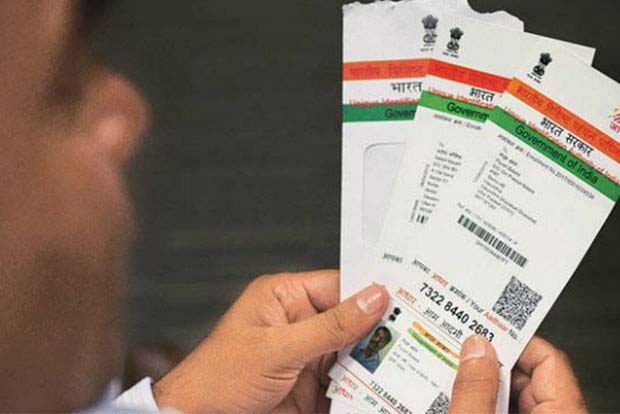Begin typing your search...
Supreme Court to pass order over uncertainty on Aadhaar linking deadline
Earlier, the top court had observed that the alleged defect of citizens' biometric details under the Aadhaar scheme being collected without any law could be cured by subsequently bringing a statute.

New Delhi
The "uncertainty" over whether the deadline for linking of Aadhaar would be extended beyond March 31 drew the attention of the Supreme Court which today said it would pass an appropriate order in this regard since the matter would have a bearing on financial institutions across the country.
A five-judge constitution bench headed by Chief Justice Dipak Misra said that it may not be possible to decide by March 31 the batch of petitions challenging the constitutional validity of the Aadhaar Act since the arguments in the matter would prolong.
It, however, did not specify any date when it would pass the order to clear the uncertainty.
The bench, which also comprised justices A K Sikri, A M Khanwilkar, D Y Chandrachud and Ashok Bhushan, said that since the matter would have implications on financial institutions, like banks and stock exchange, it would create a huge problem of compliance if the deadline was extended at the last moment.
"If the court passes an interim order on March 27, then it will create huge problem of compliance for financial institutions like banks and stock exchange," Justice Chandrachud said.
Senior advocate Arvind Datar, who concluded his arguments against the Aadhaar Act today, said that the March 31 deadline needs to be extended, a contention which was also supported by another senior advocate K V Viswanathan saying that till the court decides the matter one way or the other, Aadhaar can't be made mandatory.
The bench said that there is no problem in extending the deadline and it will pass appropriate orders in this regard.
The issue related to extension of deadline came up during the hearing of another petition in which the court directed the CBSE not to mandatorily seek Aadhaar number from students for enrolling themselves for appearing in NEET-18 examination.
Attorney General K K Venugopal said that all interim orders passed by the court in the Aadhaar matters before the Act came into existence in 2016, will have no impact now.
The bench said that interim order passed by the apex court on December 15, 2017 will have effect and has to be followed by all state and Centre.
"Our interim order of December 15, 2017, extending the deadline to March 31, has to be followed till the matter is disposed of either way," it said.
The Centre had yesterday indicated in the apex court that the deadline for mandatory linking of Aadhaar to avail various services and welfare schemes run by the government may be further extended beyond March 31.
Venugopal had said that since some more time would be needed to conclude the prolonged hearing in the Aadhaar case, the government may extend the deadline from March 31.
"We have extended the deadline in the past and we will extend the deadline again but we may do it by the end of month to enable the petitioners in the case conclude the arguments," he had said.
Arguments in Aadhaar matter from petitioners side remained inconclusive and would continue on March 13.
On December 15 last year, the apex court had extended till March 31 the deadline for mandatory linking of Aadhaar with various services and welfare schemes.
Earlier on February 22, former Karnataka High Court judge Justice K S Puttaswamy had told the apex court that several deaths had reportedly taken place due to starvation on account of glitches in the Aadhaar-based public distribution system and the court must consider granting them compensation.
Earlier, the top court had observed that the alleged defect of citizens' biometric details under the Aadhaar scheme being collected without any law could be cured by subsequently bringing a statute.
It had said that the Centre came out with the law in 2016 to negate the objection that it was collecting data since 2009 without any authorisation, but the issue which needed consideration was what would happen if the data collected earlier, had been compromised.
Visit news.dtnext.in to explore our interactive epaper!
Download the DT Next app for more exciting features!
Click here for iOS
Click here for Android
Next Story



